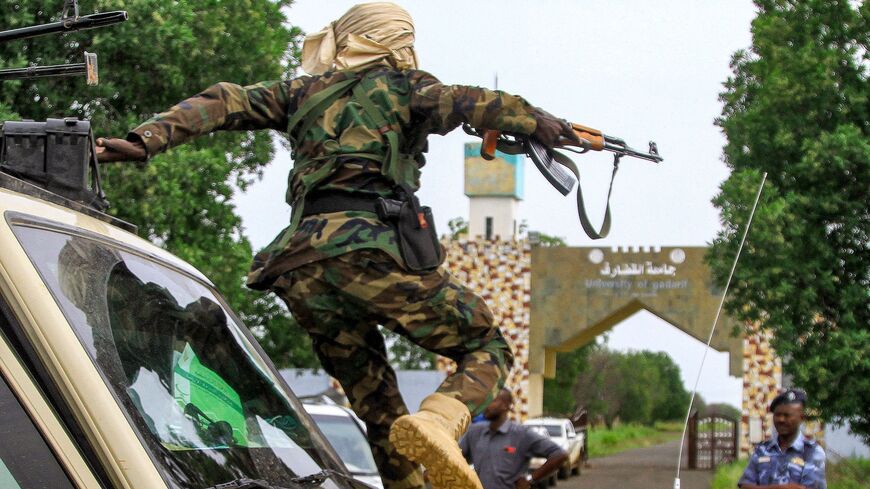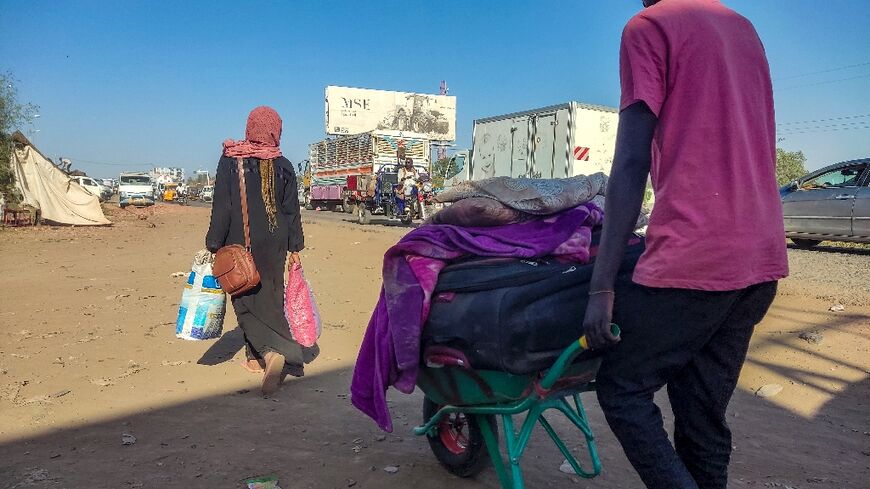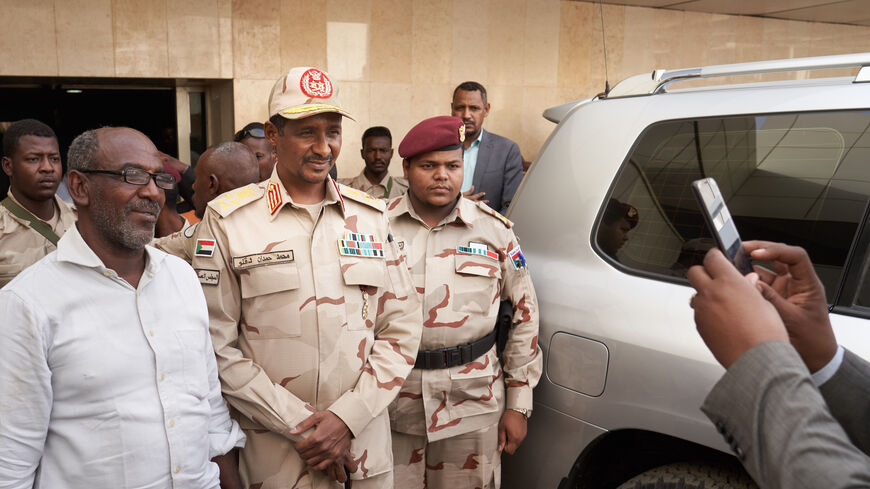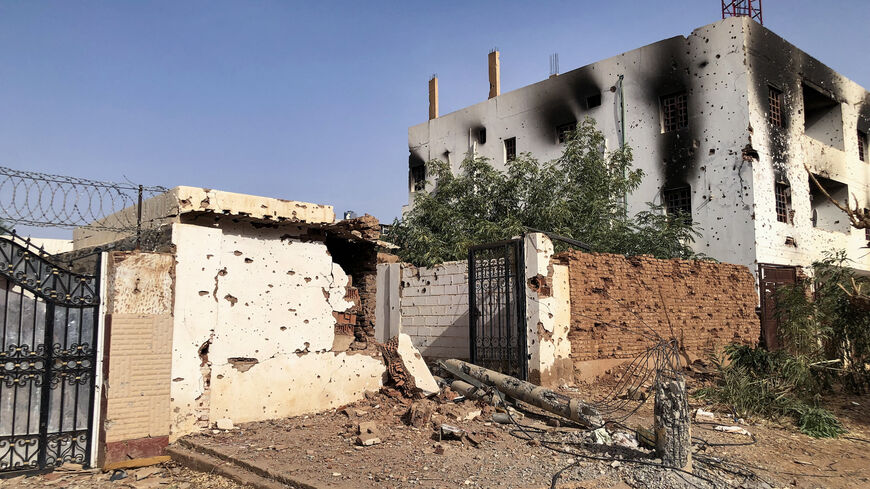Sudan’s army faces backlash over fall of Wad Madani
Calls are growing in Sudan to remove the army commander and hold accountable those who allowed the city of Wad Madani to fall into the hands of the RSF.
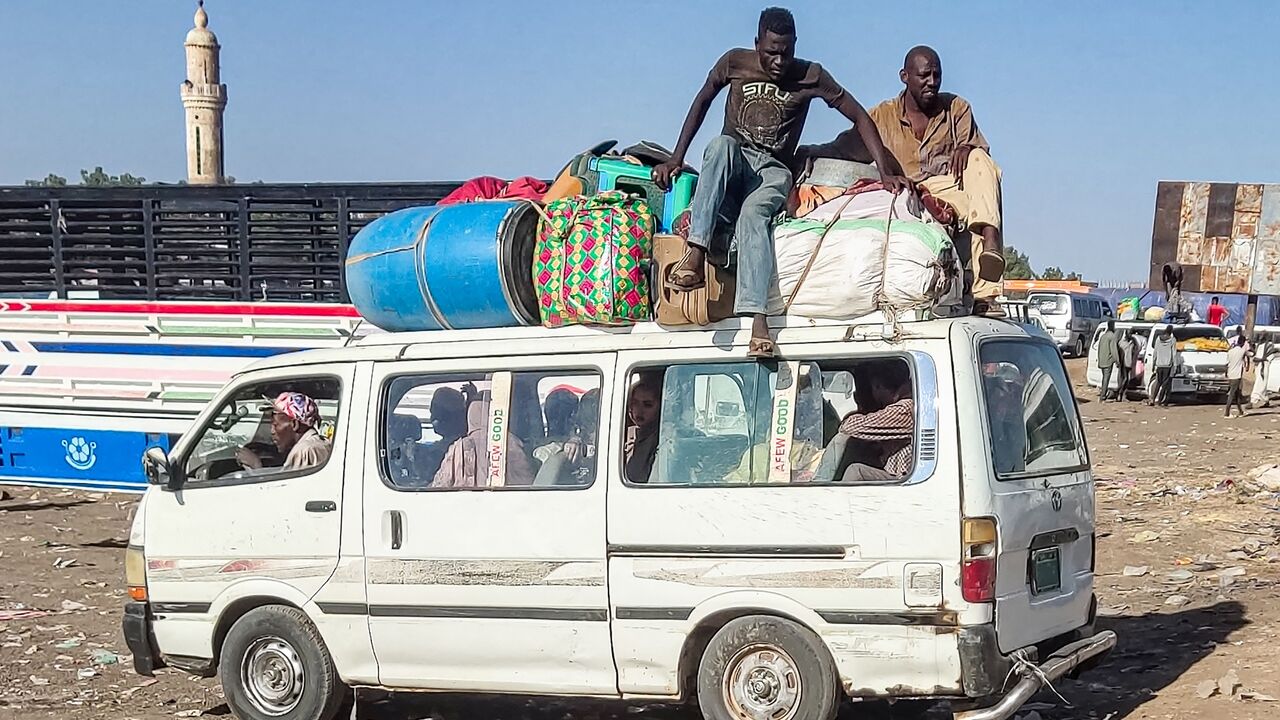
The Sudanese army and its commander are facing growing scrutiny after the swift fall of Sudan's second city of Wad Madani this week at the hands of the paramilitary Rapid Support Forces (RSF).
The RSF seized Wad Madani, the capital of al-Jazeera state, in east-central Sudan on Tuesday with little to no resistance from the army.
RSF forces and military vehicles began advancing toward Wad Madani last Friday. On Monday, the militia said it took control of the army’s first infantry division in the city.
Residents of the city have accused the army of betrayal, claiming that soldiers did not put up a fight against the invading forces and that troops were ordered to withdraw from the city.
In a statement on Tuesday, the Sudanese Armed Forces acknowledged that its troops left their positions in Wad Madani, promising to open an investigation.
لا تنهار الدول وتهزم إلا تآمر عليها أبنائها ، ونحن ننحدر إلى هذا الدرك الأسفل من العمالة والانحطاط ...
— Ogail Elhag - Elkahli 🇸🇩 (@OgailElhag) December 19, 2023
إلى الله المشتكى 💔#عزل_البرهان_والقيادة_الحالية pic.twitter.com/oER9HC5ml3
In his first public speech since the capture of Wad Madani on Thursday, army commander Gen. Abdel Fattah al-Burhan vowed to hold accountable those responsible for the withdrawal of the army in Wad Madani.
“Every soldier fulfills his duty with honesty and sincerity, and we will hold every negligent or retreating individual accountable,” he said. “Those who forced this withdrawal will also be held accountable without leniency.”
Burhan further stressed that the army will remain strong and cohesive, vowing to eliminate the “RSF militia.”
These promises failed to appease the anger of citizens, and Burhan is facing growing calls to step down from his position.
Several protests were also held across Sudan this week demanding the removal of Burhan, according to local media.
Why is Wad Madani important?
The fall of Wad Madani raises concerns due to its strategic location in the center of Sudan and its economic importance.
Al-Jazeera state is bordered to the north and west by White Nile state, to the south by Sennar state and to the east by al-Qadarif state — all under the control of the army.
The state is a major agricultural region and home to the so-called Gezira Scheme, one of the largest irrigation projects in the world. The project covers an area of 2.5 million acres (10,000 square kilometers), where a 2,700-mile (4,300-kilometer) network of canals irrigates crops like cotton and wheat using Blue Nile water.
Since the war between the Sudanese Armed Forces and the RSF erupted on April 15, al-Jazeera has served as a main center for humanitarian operations as it was spared the fighting. Now, many organizations have relocated their staff and moved their operations to neighboring states.
It was also a safe haven for hundreds of thousands of people who fled Khartoum at the onset of the war.
Around 5.9 million people live in al-Jazeera state along with nearly 500,000 displaced. Wad Madani alone houses more than 86,000 displaced people in addition to its population of 700,000, according to the UN humanitarian agency OCHA.
More than 300,000 people have fled the fighting in Wad Madani over the past few days, according to the International Organization for Migration.
“These latest movements will push Sudan's total displaced population to 7.1 million people, the world’s largest displacement crisis. More than 1.5 million people have fled into neighboring countries,” UN spokesperson Stephane Dujarric said at a press briefing on Thursday.

